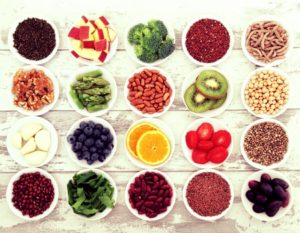There are a number of ways to fight inflammation. One of these is using marijuana, which is a well-known anti-inflammatory. Obviously, this is subjective and may not be something that works for you, although research has proven it was very effective in reducing inflammation. Here if you’re interested in going down this route. Alternatively, one of the best is using vitamins, minerals, and antioxidants. Here’s a list of some of the nutrients you should include in your daily life.
- Vitamin A. Vitamin A is an antioxidant that helps protect the body against free radicals. You can increase your vitamin A by eating a vegetables including broccoli, carrots, spinach, cantaloupe, kale, and collard greens.
- Vitamin B. Individuals who have low levels of vitamin B6 tend to have high levels of C-reactive protein, which is a measure of inflammation within the body. Vegetables high in B vitamins include mushrooms, kale, broccoli, cauliflower, an
 d bell peppers. Vitamin B is also found in turkey, chicken, and tuna.
d bell peppers. Vitamin B is also found in turkey, chicken, and tuna. - Vitamin C. There have been a number of studies that show the anti-inflammatory benefits of foods high in the antioxidant vitamin C. You can find vitamin C in lower-sugar sources like tomatoes and tomato juice. Alternatively, focus on fruits with a low to moderate sugar content including grapefruit and lemons.
- Vitamin D. Vitamin D helps reduce inflammation. When the body doesn’t have enough vitamin D, you are likely to see a range of inflammatory conditions. There are estimates that say that two-thirds of the population in the United States is vitamin D deficient. We get vitamin D naturally when we are out in the sun. Additional sources include fish, egg yolks, and organ meats.
- Vitamin E. This is another antioxidant vitamin that can really help reduce inflammation in the body. We find vitamin E naturally in nuts and seeds, including almonds, and in vegetables such as spinach and fruits like avocado.
- Vitamin K. Although not the most popular nutrient, vitamin K can help reduce inflammatory markers. It may also help protect against heart disease and osteoporosis. There are two types of vitamin K. The first type is vitamin K1, which we find in leafy vegetables like kale, cabbage, cauliflower, and spinach. The second type is vitamin K2 found in liver and eggs.
- Magnesium. This mineral can help reduce inflammation. Low magnesium is associated with high stress. Stress can trigger cravings for foods such as refined carbohydrates. Stress also alters dopamine levels in the brain, and dopamine is a magnesium-dependent neurotransmitter. It’s estimated that 70 percent of all Americans are deficient in magnesium due to poor diet. Magnesium is found in a large variety of foods, including dark leafy vegetables such as spinach, avocado, almonds, and many legumes.
Inflammation can be a thing of the past, easily controlled through proper nutrition. Think about the vitamins your body needs to fight inflammation and consume the foods designed to help you feel your best.
